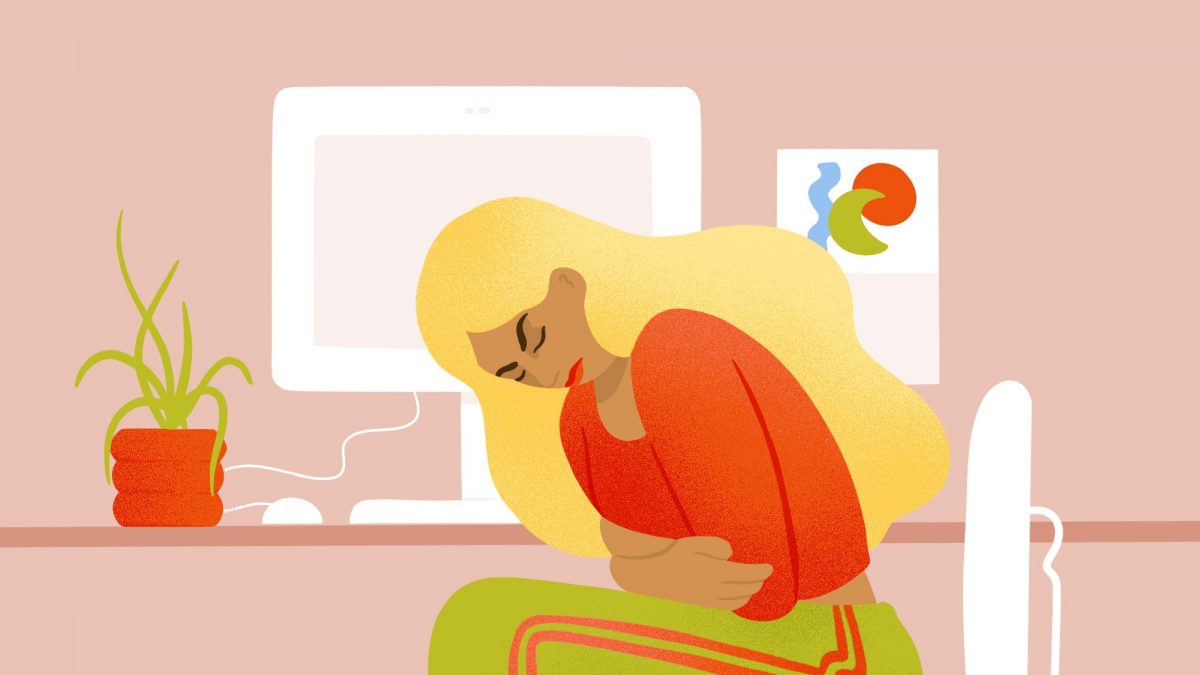Workplace menstrual health policies benefit employers too
Mehak Dugal, Fórsa Communications Unit.
Simple measures can help to create a more comfortable place of work for staff dealing with period pain, menopause and conditions such as endometriosis.
Ninety-six per cent of women want the protection of a workplace menstrual health policy, but only 1 per cent say their employer has one in place.
This was one of the key findings in a recent survey on menstrual and menopausal health published by Fórsa, the country’s largest public sector union.
The research, involving 1,800 women, also found that 70 per cent of women have taken time off work due to period pain and one in four respondents said they had been diagnosed with a specific condition, including premenstrual dysphoric disorder, endometriosis, or polycystic ovary syndrome, which resulted in medical symptoms including very heavy bleeding, migraines and nausea.
We all either are or know somebody who would benefit from a sustained commitment to creating a more comfortable place of work for people having their periods or going through the menopause.
Such findings should be noted by employers. We all either are or know somebody who would benefit from a sustained commitment to creating a more comfortable place of work for people having their periods or going through the menopause. Simple and affordable things such as better toilet facilities, ventilation and temperature controls would all do a lot for those experiencing uncomfortable and often painful symptoms.
All these measures, plus better training for line managers, would also help tackle the stigma that still surrounds menstruation and menopause. Together, they would make going to work far easier for thousands of workers.
Having a visible and effective workplace menstrual health policy could also give smart employers the edge in today’s tight labour market.
Two-thirds of those who participated in Fórsa’s survey said they would not tell their line manager about the difficulties they experience at work, particularly if that supervisor was a man. Tackling this taboo, and talking openly and respectfully about menstruation and menopause, would give workers the confidence to speak up if they are struggling.
Management training on the symptoms and challenges associated with menstruation and menopause would go a long way to increase understanding and decrease the stigma.
Management training on the symptoms and challenges associated with menstruation and menopause would go a long way to increase understanding and decrease the stigma that women experience or fear. It would also help line managers know how they can help and accommodate staff effectively, appropriately and sensitively.
Many employers could easily afford to go further and consider the provision of free period products in workplaces. This would immediately relieve unnecessary stress on the thousands of workers who’ve had those hushed conversations with colleagues, asking around for a tampon or a pad when their period arrives unexpectedly.
Free period products would also address the extra cost burden involved, making work more attractive, especially during the current cost-of-living crisis.
Like so many other issues, a new conversation about workplace handing of menstrual-related issues has begun due to the Covid pandemic. For thousands of workers, the lockdowns starkly exposed how poorly most workplaces handle menstrual health.
Our research found that over 70 per cent of women who worked at home during the pandemic found that remote working had improved their experience of menstruation.
Our research found that over 70 per cent of women who worked at home during the pandemic found that remote working had improved their experience of menstruation. They had better access to measures to alleviate the impact of menstruation and menopause, including easy access to pain relief.
Another huge plus was not having to get the train or bus when experiencing cramps, nausea, hot flushes and other symptoms. Not having to worry about finding an individual clean toilet or a private place to wash a menstrual cup was a massive relief for so many.
Above all, having flexibility and an added degree of control over when to work made it so much easier to manage menstruation and menopause. And it worked for employers too. The flexibility that comes with remote work leaves staff able to work, and work more productively, on the days they’re experiencing menstrual or menopausal symptoms.
But if working from home during the pandemic made such a positive difference, it seems obvious that the issue is not being properly addressed in most workplaces. That probably explains why much of the recent debate on this issue has centred on the pros and cons of menstrual leave. There’s been a lot of discussion, with a range of sometimes contradictory views emerging from both trade unions and the human resources community.
But if working from home during the pandemic made such a positive difference, it seems obvious that the issue is not being properly addressed in most workplaces.
No European country has yet fully adopted a national menstrual leave policy, though, last month, the Spanish government became the first EU administration to consider a legal right to menstrual leave.
Its draft law would allow up to three days’ leave per month, as well as other measures to improve menstrual health including the removal of Vat from sanitary products, which would be provided free to school students and women in marginalised circumstances.
Given that one in four respondents to Fórsa’s survey said they had been diagnosed with a specific medical condition related to menstrual health, there is certainly a place for time off and flexible working time in any menstrual leave policy.
The main emphasis, however, should be on making our work locations healthier and more comfortable places for workers to be when they have their periods or experience often debilitating menopausal symptoms. That means more a more productive workplace for employers too.
Delegates at the union’s conference last month backed a conference motion from the union’s Dún Laoghaire-Rathdown branch calling for the union to pursue workplace menstrual-health policies.
This article first appeared in the Business Post on Sunday 26th June 2022.

